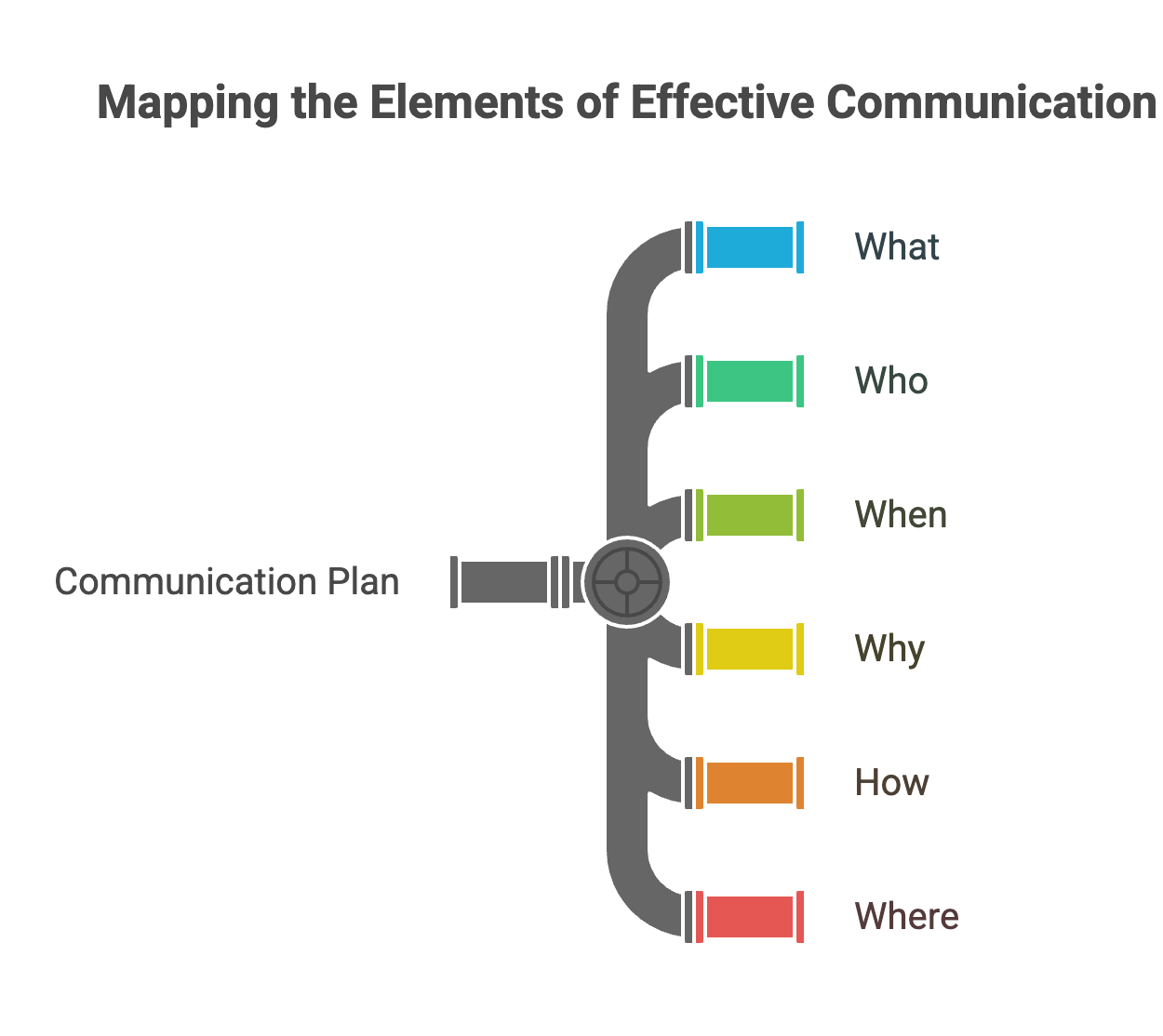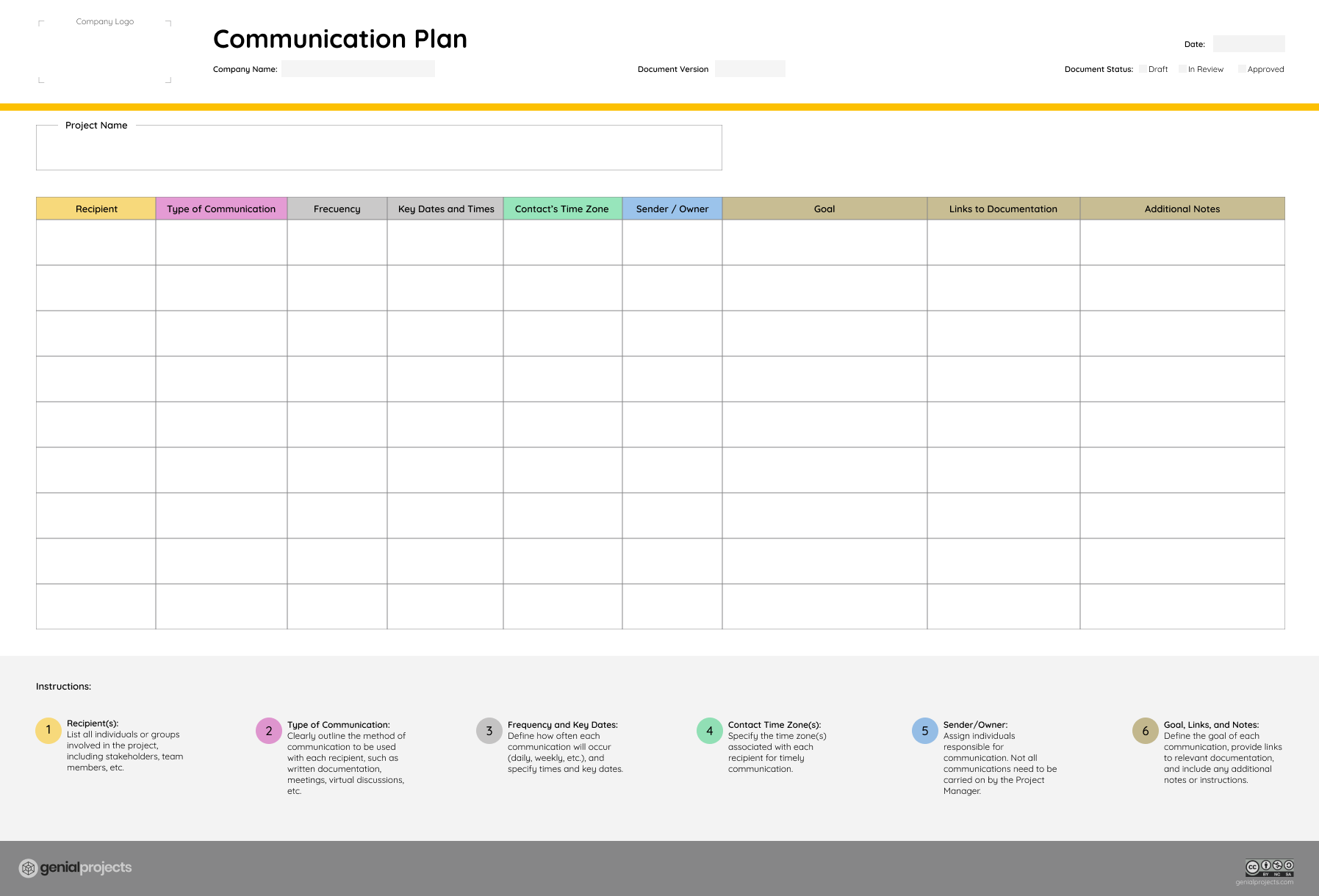Communication is the lifeblood of project management, with project managers spending a staggering 90% of their timne to it. This article aims to assist project managers and leaders in effectively planning project communications. In the project context, communication is not just the exchange of information; it encompasses what is shared, how it is shared, and with whom it is shared. This article delves into the importance of planning communications upfront, emphasizing that it is a continuous process throughout the project life cycle. While the project manager plays a pivotal role in communication planning, the responsibility is shared among all team members, allowing for delegated information flows to eliminate communication bottlenecks.
Effective Communication in Project Management
Effective communication is a cornerstone for ensuring projects run smoothly, demanding clarity, honesty, relevance, and frequency. In the realm of project management, effective communication goes beyond exchanging information; it involves creating a shared understanding among team members and stakeholders. This shared understanding is a linchpin for project success, ensuring that everyone involved comprehends their roles and responsibilities. Effective communication fosters collaboration, mitigates risks, and promotes a positive project culture. It's not merely about transmitting information; it's about establishing a dynamic dialogue that adapts to the evolving needs of the project.
Communication encompasses a variety of channels, including written documentation, face-to-face meetings, virtual discussions, and more. The challenge lies in tailoring the communication method to the specific audience and the nature of the information being conveyed. The ability to convey complex technical details to non-technical stakeholders or to ensure team members are well-informed about project milestones is a skill that distinguishes successful project managers.
Why it's Important to Plan Communications Upfront?
Planning project communications at an early stage is a strategic move that pays dividends throughout the project's lifecycle. It not only enhances overall communication but also keeps stakeholders and team members engaged and motivated. Early planning ensures that project stakeholders remain involved in meaningful conversations, providing valuable insights and perspectives. This proactive approach is instrumental in maintaining project momentum, especially in the face of unexpected changes such as a shift in project management or alterations to the project team.
Additionally, a well-thought-out communication plan serves as a guide for successful project delivery or implementation. It becomes a reference point for navigating challenges and aids in decision-making during critical project junctures. Beyond its immediate benefits, a communication plan becomes a valuable artifact that future project managers can leverage, fostering a culture of continuous improvement and knowledge sharing within the organization.
Crafting a Comprehensive Communication Plan
A communication plan serves as the backbone of effective project communication, providing a structured approach to organizing and documenting communication processes, types, and expectations. To craft a comprehensive plan, project managers need to consider several key elements:

What needs to be communicated?
A clear understanding of the project's information requirements, covering status updates, issue resolutions, user feedback, and other critical updates.
Who are the communication recipients?
Identification of stakeholders and team members who need to be informed or consulted, ensuring that the right information reaches the right audience.
When communication needs to happen?
Determining the frequency, timing, and relevance of communication, striking a balance to avoid both communication gaps and overload.
Why communicate?
Defining the purpose and goals of each communication, aligning messages with project objectives to ensure clarity and relevance.
How to communicate?
Choosing appropriate communication channels and methods based on the type of information and the preferences of the recipients.
Where the information being communicated is stored?
Ensuring accessibility and easy retrieval of information by designating appropriate storage locations.
This structured approach ensures that project communication is not left to chance but follows a methodical and purposeful path.

Fine-Tuning Your Communication Plan
A communication plan is not a static document but a living one that evolves with the project. The initial plan, shared during the project planning phase, serves as a baseline. However, its effectiveness is gauged and refined continuously based on feedback from stakeholders and team members. As the project unfolds, the project manager and communication leads test the plan's efficacy and seek input from the audience.
Regular evaluations, facilitated through anonymous surveys, polls, and direct feedback during team meetings or one-on-one sessions with key stakeholders, help identify what aspects of the communication plan are working well and what areas need improvement. This iterative process is essential for adapting to changing project dynamics, ensuring that communication remains a dynamic and responsive component of project management.
Key Takeaways
In conclusion, effective project communication is a multifaceted endeavor that requires strategic planning and continuous refinement. The project manager, as the primary custodian of communication planning, must involve all stakeholders and team members in this critical process. Early planning ensures sustained engagement, motivation, and project success. A well-crafted communication plan acts as a roadmap, guiding the project through its various stages and challenges. It is not a static document but a dynamic one that evolves with feedback and experience, reflecting the adaptive nature of successful project management.